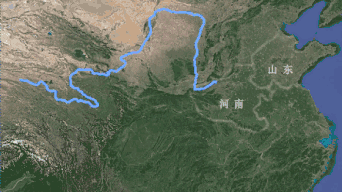动词的时态

英语的动词在表示不同的时间发生的行为或存在的状态时,要用不同的形式来表示,这种不同的形式叫作动词的时态。英语共有16种时态,初中阶段我们主要学习8种时态,其中重点掌握一般现在时、现在进行时、现在完成时、一般过去时、过去进行时、一般将来时。
1. 一般现在时
a. 概念:表示经常发生或习惯性的动作或状态,也可以表示现在的一般状况。
b. 构成: 动词原形(主语是第三人称,谓语用第三人称单数形式)
c. 常见时间状语:always,often,usually,every day (month,week,year)等。
d. 例句:
I leave home for school at 7 every morning. 每天早上我七点离开家。
Shanghai lies in the east of China. 上海位于中国东部。
Ann writes good English but does not speak well. 安英语写得不错,讲的可不行。
2.现在进行时
a. 概念:表示现在正在进行的动作,也可表示现阶段一直在进行的动作。
b.构成: be ving
动词ing形式的构成
规则
例词
1.一般直接在动词后面加ing。
go-going stand-standing sleep-sleeping eat-eating sing-singing drink-drinking
2.以不发音字母e结尾的动词,去e后再加ing。
come-coming dance-dancing close - closing make – making ride – riding write - writing
3.以重读闭音节结尾的词,如果末尾只有一个辅音字母,应先双写这个字母,再加ing。
sit- sitting get-getting swim- swimming run - running cut – cutting put – putting
c.常见时间状语:now,at the moment以及提示词look,listen等。
d: 例句:
We are waiting for you now. 我们正在等你。
Mr Green is writing another novel. 他在写另一部小说。
Look!The children are swimming in the river.看!孩子们正在河里游泳。
【注意】
现在进行时与always等词连用,表示反复发生的动作或持续存在的状态,往往带有说话人的主观色彩,如赞扬、厌恶、不满等情绪。例如:
You are always changing your mind. 你老是改变主意。
He is always helping others .We all like him.他总是乐于助人,我们都喜欢他。
3.现在完成时
a.构成: have/has 过去分词
b.用法:
(1)现在完成时表示过去发生的动作对现在造成的影响或结果。常见的时间状语有already,yet,just,ever,never,before等。例:
I have already posted the letter.
(寄信的动作发生在过去,对现在造成的影响是:照片不在我这里了。)
(2) 现在完成时表示从过去已经开始、一直持续到现在、并且有可能继续下去的动作或状态。它通常和表示从过去某一时刻延续到现在的一段时间的状语连用,如for,since等。表示持续动作或状态的动词多是延续性动词。例:
She has taught English for more than 10 years.她已经教了10多年英语了。
They have known each other since they came to this school.他们自从来到这个学校就互相认识了。
【注意】for 后面跟时间段,而since 后面既可以跟时间点,又可以跟含有过去时态的从句。请比较:
He has lived in Hefei for 10 years.
=He has lived in Hefei since 10 years ago.他在合肥已经居住了10年。
Mr Li has been a teacher since he graduated from the university.李先生从大学毕业后,一直当老师。
c.现在完成时和一般过去时的区别
现在完成时表示过去发生的某一动作对现在造成的影响和结果,强调的是现在的情况,所以它不能和表示过去的时间状语连用,如: yesterday,last night,three weeks ago,in 1991等。而一般过去时只表示过去的动作或状态,与现在没有关系,它可以和过去时间状语连用。如:
I have seen the film.我看过这部电影。(我看电影的动作发生在过去,对现在造成的结果是“我了解电影的内容。”)
I saw the film last week.我上星期看了这个电影。(只说明上星期看了这个电影,不涉及现在的情况。)
d.短暂性动词不能和表示一段时间的状语连用。
有些动词代表一个短暂的动作,称作短暂性动词(终止性动词),因而它们在现在完成时态中不能与表示一段时间的状语连用(如for构成的短语)。常见的短暂性动词有come,go,begin,buy,die,join,leave,borrow等。这些动词如果要与一段时间连用,需找出与其意思相同的动词、形容词或副词替换。现总结如下:
①The man has died for three years.(×)那个老人已经死了三年了。
=>The man has been dead for three years.(√)
②The meeting has begun for five minutes .(×) 会议已经开始五分钟了。
=>The meeting has been on for five minutes.(√)
③He has left Hefei for three years. .(×)他离开合肥已经3年了。
=>He has been away from Hefei for three years. (√)
④Mr Green has bought the watch for two months. .(×)格林先生买这块手表已经两个月了。
=>Mr Green has had the watch for two months. (√)
⑤My brother has joined the army for one year and a half .(×)我哥哥已经参军一年半了。
=>My brother has been in the army for one year and a half. (√)
⑥He has come to China for 3 weeks. (×他来中国已经三个星期了。
=>He has been in China for 3 weeks. (√)
⑦Jack has borrowed the dictionary for two weeks. (×)杰克借这本字典已经两周了。
=>Jack has kept the dictionary for two weeks. (√)
4.一般将来时
a.概念:表示将要发生的动作或存在的状态。b.构成: shall/will 动词原形
be going to 动词原形
c. 常见时间状语:tomorrow,next morning(Friday,year..)等。
d:例句:
I'm going to play football tomorrow afternoon. 明天下午我想去踢球。
We will have a math test next week. 我们下星期将进行数学测验。
Are you going to take a vaction in Europe?你准备到欧洲度假吗?
5.一般过去时
a.概念:表示过去一次性或经常性的动作或过去存在的状态。b.构成: 动词过去式
动词的过去式分为规则变化和不规矩变化:
(1)规则变化就是在动词末尾加ed,它分为以下四种情况:
规则
例词
①一般情况下在动词原形后直接加-ed
want-wanted playpla-yed
②以不发音的字母e结尾的动词,直接加-ed。
hope-hoped live-lived
③重读闭音节单词需双写最后一个辅音字母再加-ed。
stop-stopped prefer-preferred
④以辅音字母 y结尾的动词变y为i,再加-ed。
study-studied worry-worried
(2) 不规则变化的一般规律如下:
1.把动词原形中的i改为a,变成过去式。如:
begin—began,drink—drank,give—gave,ring—rang,sing—sang,sit—sat,swim—swam
2.把重读开音节中的i改为o,变成过去式。如:
drive—drove,ride—rode,write—wrote
3.改动词原形中的aw /ow为ew,变成过去式。如:
draw—drew,grow—grew,know—knew,throw—threw(动词show除外,show—showed)
4.动词原形中的e改为o,变成过去式。如:
get—got,forget—forgot
5.动词原形中的ee改为e,变成过去式。如:
feed—fed,meet—met
6.动词原形中的eep改为ept,变成过去式。如:
keep—kept,sleep—slept,sweep—swept
7.动词原形中的eak改为oke,变成过去式。如:
break—broke,speak—spoke
8.动词原形中的ell改为old,变成过去式。如:
sell—sold,tell—told
9.动词原形中的an改为oo,变成过去式。如:
stand—stood,understand—understood
10.以ought和aught结尾,且读音是[ :t]的过去式。如:
bring—brought,buy— bought,think—thought,catch—caught,teach—taught
11.以ould结尾且读音为[ud]的情态动词过去式。如:
can—could,shall—should,will—would
12.把动词原形中的o改为a,变成过去式。如:
come—came,become—became
13.在动词原形后加d或t变成过去式,并且发生音变。如:
hear[hi ]—heard[h :d], say[sei]—said[sed],mean[mi:n]—meant[ment]
14.动词的过去式与动词原形一样。如:
let—let,must—must,put—put,read—read[red]
15.不符合上述规律的动词过去式。如:
am,is—was,are—were,build—built,do—did,eat—ate,fall—fell,feel—felt,find—found,fly—flew,go—went,have /has— had,hold—held,leave—left,make—made,may—might,run—ran,see—saw,take—took
c. 常见时间状语: yesterday, last year(week,month...),two weeks ago,three hours later,just now, in 1995等。d:例句:
I met Mr Li in the street yesterday.我昨天在街上遇见李先生了。
Our school built a new library last year.我们学校去年修建了一个新图书馆。
6.过去进行时
a.概念:表示过去某一时刻或某段时间内正在进行的动作。b.构成: was/were ving c. 常见时间状语: at this time yesterday,at that time,at nine o’clock last night等。d:例句:
I was watch TV at home at this time yesterday.我昨天的这个时候正在看电视。
It was raining when they left the station. 他们离开车站时,正下着雨。
My mother was cooking when I got home.我到家的时候,妈妈正在做饭。
7.过去完成时
a.概念:过去完成时表示在过去某一时间或动作之前已经发生或完成的动作。它表示动作发生的时间是“过去的过去”。
b.构成: had 过去分词
c.过去完成的适用范围
(1)在 when ,before,after,by the time等引导的时间状语从句中,如果主、从句谓语动作发生的时间不同,那么先发生的动作通常用过去完成时表示。例:
When I got there , the meeting had begun.当我到那儿的时候,会议已经开始。
The rain had stopped before I finished my work. 在我完成工作之前,雨就已经停止。
(3)在含有宾语从句的复合句中,如果从句谓语动词发生的时间先于主句谓语动词,从句谓语动词通常用过去完成时。如:
He said he had never seen such an exciting match before.他说他以前从未看过如此令人兴奋的比赛。
He told me that he had had lunch at school.他告诉我,他已经在学校吃过饭了。
8.过去将来时
a.概念:过去将来时表示从过去某个时间看将来要看发生的动作或存在的状态。
b.构成: would 动词原形
was/ were going to 动词原形
c:例句: Nobody knew what would happen in a hundred years. 没有人知道一百年之后将会发生什么事。 We didn’t know whether she was going to speak at the meeting. 我们不知道她是否准备在会上发言。 They said that they were going to West Hill Farm if it didn’t rain the next Sunday. 他们说如果下星期天不下雨他们就去西山农场。 The teacher asked Tom what he was going to be when he grew up. 老师问汤姆长大后准备干什么。 She didn’t say when she was coming again next time. 她没说下一次什么时候会再来。
r
,




